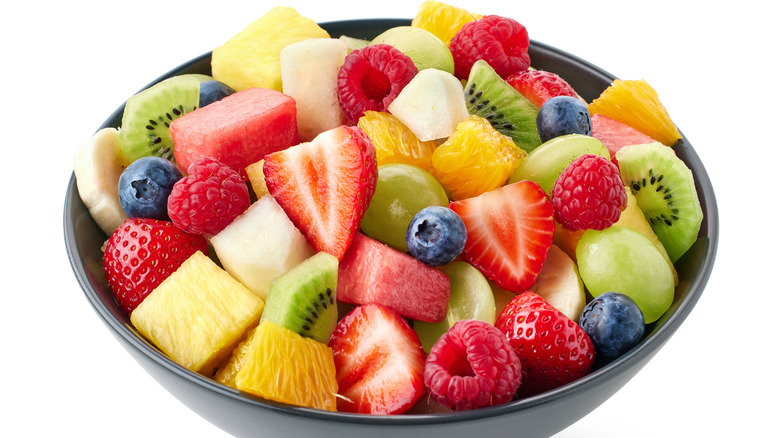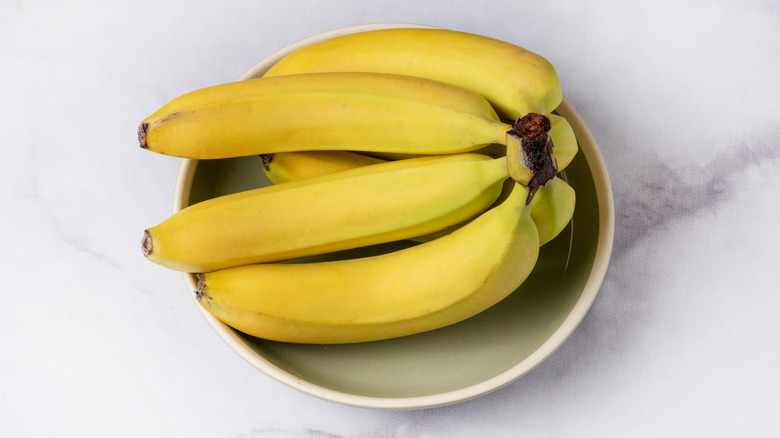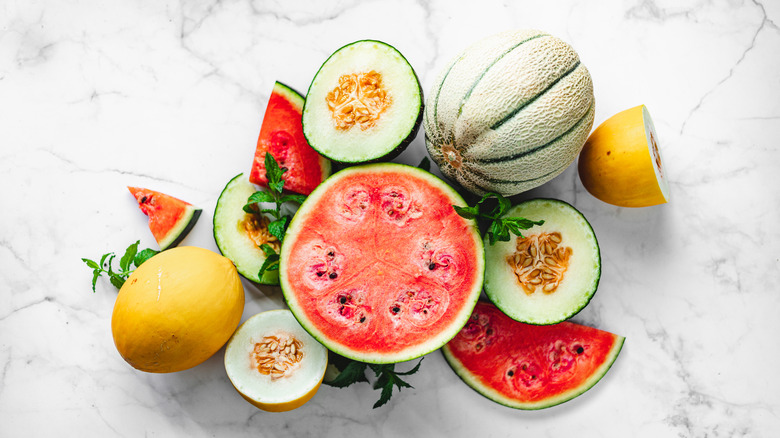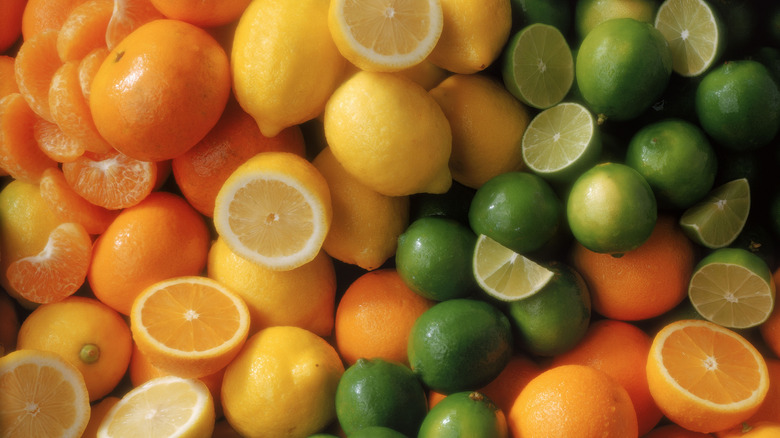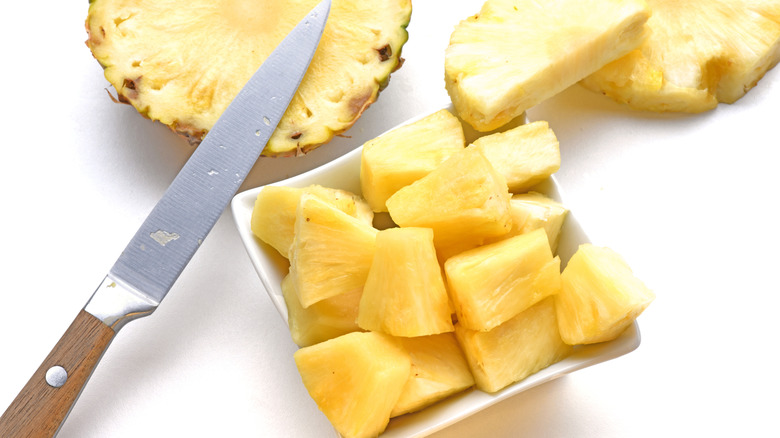The Worst Fruits To Use When Making Fruit Salad
Your friends are hosting a potluck, and you need to come up with a great side dish you can whip up quickly, without too much fuss or expense. You know you can usually expect to find meats and cheeses, but how about something nutritious? A fruit salad is a great choice. It not only looks pretty and colorful sitting on the table among other potluck fare, but it's a healthy, refreshing counter to the heavier, fattier options that might already be there.
But we've all been subjected to buffets with lackluster fruit salads, which contain browning, mushy fruits — no wonder they're among the foods you should avoid at the continental hotel breakfast buffet. So, how do you create a salad that stays looking vibrant and tasting fresh for the duration of your meal or event? The key is to avoid certain fruits. Here are the worst fruits to use when making your fruit salad.
Bananas
Ahead of the bunch in the brown and mushy category, sliced bananas can turn a whole fruit salad into an unappetizing mess, particularly when used with high-moisture fruits such as berries, or with high-protein fruits like guava, kiwi, and blackberries. The same advice goes for other starchy fruits besides bananas, such as plantains. The moisture in berries not only turns bananas into an icky, slimy mess, but their colors bleed, making the salad visually unappealing.
Bananas (especially when not fully ripe) contain more starch than most fruits. The combination of such starchy fruits with high-protein fruits can actually be dangerous; the high protein content in some fruits need acids to digested, while the bananas need alkaline base for digestion. A combination of the two can impede digestion. Instead, use bananas with other crisp, low-moisture fruits, like apples or grapes. If you do decide to go with bananas, take care with the combination of fruits you use.
Melons
Speaking of fruits with high moisture content, melons — particularly watermelon — are repeat offenders. A watermelon is about 91% water, and cantaloupe is a close second at 90%. That's great for hydration, but not so great for the rest of your fruit salad ingredients, which can wind up into a soggy mess with diluted flavor. Moreover, melons digest differently than some other fruits that need more time to be digested.
If you really want to include melons, it's advised that you pair them with low-moisture fruits. Grapes, pears, apples, or blueberries work well, and you can even turn them into a three-ingredient 4th of July fruit salad tossed in a light, flavorful dressing.
Citrus
Citrus fruits — such as oranges and grapefruit — can be tricky in fruit salad. Orange sections are a favorite addition for many, and a sprinkle of lemon juice can keep fruits like banana slices from browning too soon. However, the high levels of acidity in this fruit category can backfire, particularly when combined with sweeter, non-acidic fruits such as bananas, turning them a tart mush rapidly.
If you're a fan of citrus, consider tossing up an all-citrus fruit salad with oranges, tangerines, and grapefruit, perhaps with a handful of pomegranate seeds for a tart yet sweet contrast. Another tip for using citrus is to add them in at the last minute, just before serving, to minimize the effect they can have on other fruits.
Pineapple
Have you ever eaten a pineapple and finished with a sore mouth? That's likely due to bromelain, a digestive enzyme present in pineapples. The enzyme is said to have numerous health benefits, from anti-inflammatory properties to relief of sinus congestion. But it also is powerful stuff that can cause sores on your hands and mouth if touched for prolonged periods of time.
It's not uncommon to find pineapple in fruit salad, and the average person won't have adverse reactions, but that enzyme also can wreak havoc on other fruits it's combined with in fruit salads, such as berries, bananas, or kiwi. It can overpower their flavor and make them soggy. Not only that but texture matters too. A pineapple that's tough and fibrous is an unpleasant contrast when combined with soft fruits. Best to skip the pineapple in a salad and enjoy it on its own instead.
